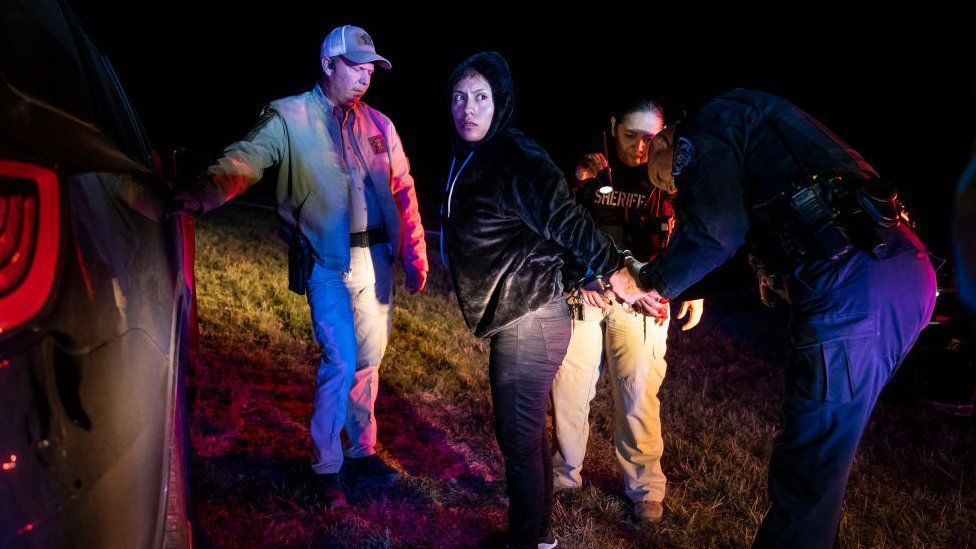
Appeals court freezes Texas’ new immigration law

SB4 would give police officers in Texas broad powers to arrest migrants
By Bernd Debusmann & Max Matza & Mattea Bubalo
BBC New
A federal appeals court has frozen Texas’ controversial immigration law, one of the toughest laws of its kind enacted by a US state in modern times.
The decision came just hours after the Supreme Court allowed the measure, SB4, to take effect pending an appeal.
The measure would allow officials in the state to detain and prosecute unauthorised migrants.
Mexico has refused to accept any migrants deported by Texas under the new law.
The Biden administration has challenged SB4, calling it unconstitutional.
The decision to freeze the law is the latest in a string of rulings deciding its fate.
If it were to come back into effect it would mark a significant shift in how immigration enforcement is handled, as courts have previously ruled that only the federal government can enforce the country’s immigration laws – not individual US states.
Crossing the US border illegally is already a federal crime, but violations are usually handled as civil cases by the immigration court system.
Under SB4, punishments for illegal entry or re-entry into Texas range up to 20 years in prison.
While the law was briefly in effect, Mexico had refused to accept any migrants deported by Texas under SB4.
The Mexican foreign ministry said in a statement on Tuesday: “Mexico categorically rejects any measure that allows state or local authorities to exercise immigration control, and to arrest and return nationals or foreigners to Mexican territory.”
Mexican officials have previously criticised SB4 as “anti-immigrant” and warned it would complicate relations with the US – an argument echoed by the US Department of Justice.
SB4 would end up “creating hostile environments in which the migrant community is exposed to expressions of hate, discrimination and racial profiling”, said the foreign ministry.
The ministry said Mexico would join the legal effort by US President Joe Biden’s government to block SB4.
Earlier on Tuesday, the Supreme Court allowed the measure to take effect while a lower federal appeals court weighed its legality. Three liberal justices dissented from the conservative majority ruling, which rejected an emergency appeal from the White House.
Then in a brief order late on Tuesday night, a three-judge panel at the New Orleans-based US Court of Appeals for the Fifth Circuit voted to freeze the ruling.
Historically, the federal government has created laws and regulations on immigration, even though the US Constitution does not explicitly grant it those powers.
It is also the federal government that negotiates treaties and agreements with other countries.
SB4 was signed into law in December and was initially due to come into effect on 5 March before it became bogged down in legal challenges.
Republicans often criticise Democratic President Biden’s handling of the US-Mexico border, which opinion polls suggest is a prime concern for voters ahead of November’s White House election.
A Gallup poll released in February suggested that nearly one-third of Americans believe immigration was the single greatest problem the country faced ahead of the government, the economy and inflation.
Source: https://www.bbc.co.uk/news/world-us-canada-68613083















